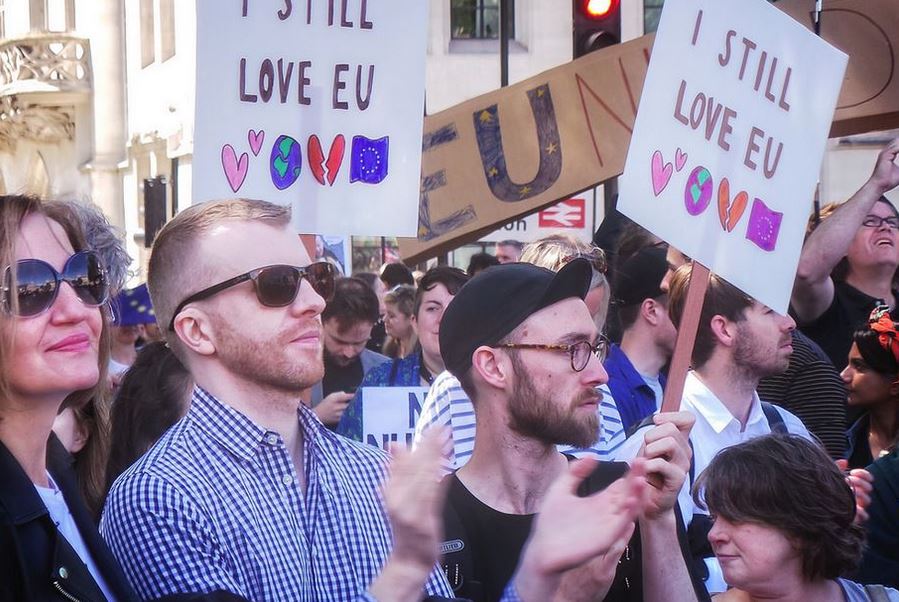That Americans are a very lucky people was long ago recognized by a German Chancellor. That would be Otto von Bismarck, who is alleged to have muttered more than once that “God takes care of drunks, little children, and the United States of America.”
Well, God is apparently still at it, whether we realize it or not.
The American people have been given a dying Europe to observe and learn from. Better yet, we’ve been given time to avoid taking the fateful steps that could put us on the European path to civilizational suicide. It’s as though someone is whispering to us: “Look what is happening to Europe. Their fate is sealed. But there is still time for America to escape a similar verdict.”
Progressives have long been trying to convince Americans to follow the lead of Europe in any number of ways. The most obvious and unrelenting is the progressive call to build our own cradle-to-grave national welfare state. Of course, the most prominent feature of such a state is a national health care apparatus. You know the line: Every civilized industrial state—except the USA—has nationalized health care.
But do we want to follow the lead of Europe, especially Western Europe, when it comes to the fateful business of committing national (as opposed to continental) suicide? After all, that is precisely what Western Europe is in the process of doing.
Long ago economist Milton Friedman warned us against the double whammy of porous borders and a generous welfare system. Countries could afford one or the other, but not both—and especially not both at the same time. Well, Western Europe has had both for a very long time. And both are in the process of killing Western Europe.
If you doubt it, read Douglas Murray’s important new book, even if the story he has to tell is already depressingly old. An Englishman by birth and a Brexiter by choice, Murray’s central figure is another German leader. That would be Chancellor Angela Merkel, who in 2015 announced that Germany would take in up to one million Syrian refugees, turning a trickle of incoming refugees into a flood.
Echoing here and there in these pages is a line that Merkel has often repeated to the German people: “We can do this.” In other words, lacking the will to stem the tide of migrants from the Middle East, Merkel has called upon her constituents to summon the will (of sorts) to accommodate them.
Merkel might have asked the German people to prepare the way to integrate these migrants/refugees into German culture. But that has never been her approach. Nor has it been the policy of the leaders of the other major states of a dying Western Europe.
And a dying Western Europe it is, even if the title of this book proclaims that Europe is already dead. There is some discrepancy between that title and the book’s contents. Murray hedges his bets all along the way. What is happening is probably not reversible, but there is always a chance. Nonetheless, at this late date it is “now all but impossible to recover,” he writes.
The key is that inevitable human wild card, namely human will. It’s reasonably strong in Eastern Europe, especially Hungary and Poland. It’s unreasonably weak across the continent.
In the end, it really does come down to a matter of will. Murray is far from optimistic, but he is not quite ready to close the lid of the coffin. If he were, he surely would not have bothered to write this book.
And yet what he has given us in these pages does amount to an autopsy. The causes of death? Murray dwells on no less than seven: Western guilt about imperialism and other sins, declining birth rates, the rise of multiculturalism, fear of being pinned with the “fascist” label, secularization, “existential tiredness,” and the failures of Europe’s elites.
The elites of Europe expected people to move to Europe and become European by adopting European values all on their own. But in the 21st century what does this mean? Just what are European values?
Murray puts the problem this way: If Europe is going to become a home for the world, then it must search for a definition of itself that is wide enough to encompass the world. Inevitably, values, such as they might be defined, will become so wide as to be “meaninglessly shallow.”
In the process, what it means to be British or French or German will be irretrievably lost. That troubles Murray, but it does not trouble European leaders on the left and the right. Worse than that, Murray accuses the Labor government of Tony Blair of deliberately putting in place a policy of societal transformation. With immigrants serving as the “battering ram,” a cultural war was being waged against the British people. That war has continued in England since the demise of the Blair government, just as it continues to be waged in virtually every country of Western Europe. It’s as though the elites prefer to dissolve their own people and replace them with entirely different people.
Of course, the common people who are being ignored and replaced have raised objections, much to the consternation of their leaders. Merkel is among the consternated. She has asked Mark Zuckerberg if anything could be done to stop Europeans from criticizing her immigration policies on Facebook. He has assured her that he is working on it.
Meanwhile, Douglas Murray has been working on a very different project. The result is this very important book. An exercise in reporting, philosophical speculation, and anger, The Death of Europe ranges widely over the continent. It includes stories of the negative consequences of mass migrations that are well known, amid many that are just as troubling, if not as well known.
Overriding it all is this damning irony: amid all the celebrations of diversity that abound across Europe, what people cannot bring themselves to celebrate is the very European culture that encouraged such diversity in the first place. Here guilt and “tiredness” have combined to leave Europe helpless and resigned.
And in America? Will we learn from the European example? And if so, will we learn that will matters? After all, luck can only take a people so far.
















Leave a Comment
Your email address will not be published. Required fields are marked with *